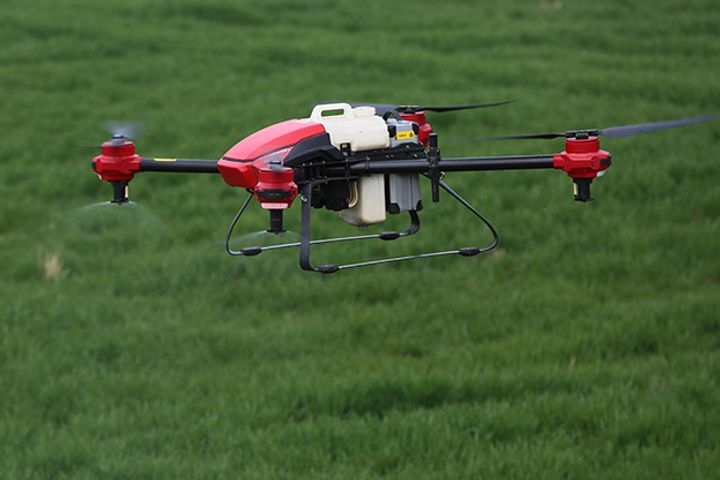 Chinese Aging Farms Step Into AI Era With Facial Recognition for Pigs
Chinese Aging Farms Step Into AI Era With Facial Recognition for Pigs (Yicai Global) March 21 -- Chinese agricultural producers are increasingly using high-tech, including facial recognition and drones, to cope with the decreasing number of dedicated workforce as well as to become more effective.
Technologies like big data, sensors and drones, are entering farms to bring about the next green revolution, Zhu Qinghua, a director at seed and chemical supplier Syngenta China, told Yicai Global.
Farmers need to make 40 to 50 decisions annually to secure their harvests, including the selection of seeds as well as preventing diseases and pests, Huang Weidong, the China head at agricultural input firm Bayer Crop Science, told Yicai Global. This is why the industry is gradually moving closer to precision agriculture, trying to predict environmental conditions, Huang added.
Alibaba and JD.Com on Facial Recognition
China's big tech giants of Alibaba Group Holding and JD.Com have lined up to have their piece of the smartening agricultural technology pie.
Hangzhou-based Alibaba's cloud computing unit has introduced ET Agricultural Brain, which uses facial, temperature and voice recognition to assess each pigs' health. The technology can tell whether a sow is pregnant by following its sleeping and standing positions as well as eating habits.
Beijing's JD.Com has also launched a facial recognition system, designed for swine. The three modules of Shennong Brain, Shennong Internet of Things Devices, and the Shennong System, help monitor each pig's weight, growth and health status.
JD.Com's system will reduce pig farmers' labor costs in the range of 30 percent to 50 percent, and lower the need for feed, as well as shorten hogs' lifespan by five to eight days by optimizing animals' growth conditions, based on the firm's estimate. China could save CNY50 billion (USD7.5 billion) if it applied the system to all pig farms nationwide.
Drone Vs. Human
In addition to maximizing meat production, new technologies have started substituting human labor. China's rural population is aging and amid a lack of farmers, AI machines have become a trend, Zhang Wenpeng, the vice president commercial at Beijing-based Gago Group, told Yicai Global.
Unmanned aerial vehicles are faster than humans as they can apply pesticides up to about 132 acres of farmland each day in northern China, whereas one person is usually able to cover a maximum of 5 acres per day. So far drones have sprayed pesticides to 44 acres of soil in China.
UAVs also have new skills. They can map the area by using satellite imaging which involves artificial intelligence to extract data, Big Data to assess problems and cloud computing to make it easier for farmers to use the data tools, Zhang from Gago added.
Over 1.2 million farmers have penned deals with agricultural drone maker XAG and the Guangzhou-based firm aims to increase the number to 3 million this year by partnering with traditional machinery stores.
Editor: Emmi Laine